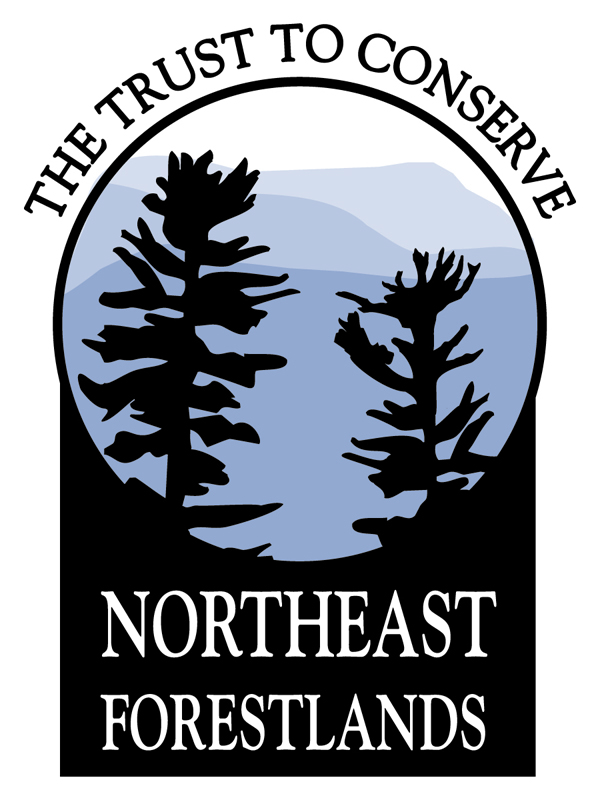Funds Available for Projects that Diversify Markets for Wood
CONCORD, NH — The Future Forest Economy Initiative is investing $250,000 to enhance markets for certified wood and to strengthen the supply chain for wood in the Northern Forest region through a grant to the Trust to Conserve Northeast Forestlands (TCNEF).
“Only a fraction of the forestland in our region is green certified,” said Joe Short, vice president of the Northern Forest Center, which manages the Future Forest Economy program. “Certifying logging companies through TCNEF’s Master Logger program will increase the volume of certified, sustainably harvested wood available to the region’s mills. Certified lands alone are not enough to meet demand for certified wood in the region.”
The three-year grant award will enable TCNEF to expand the ranks of certified Master Logger companies in the region, with a focus on New Hampshire, New York and Vermont. The Master Logger program improves logger performance, company financial stability, and workforce development and retention while increasing the supply of certified wood fiber.
“TCNEF is excited about the opportunity to increase the ranks of third-party certified logging companies in the Northern Forest Region,” said Ted Wright, executive director of TCNEF. “Master Loggers have proven records of professionalism, stewardship, and stimulating local economies.”
The Future Forest initiative — a cooperative effort of the U.S. Economic Development Administration (EDA), U.S. Endowment for Forestry & Communities, and the Northern Forest Center — grew out of a congressional mandate to support the development of markets for wood products. This is the fourth grant in a three-year program that will invest $2.6 million to expand innovation, create market demand and create conditions that will allow businesses and communities to benefit from these innovations.
The Northeast Master Logger program is a performance-based certification for logging companies in seven Northeastern states: Maine, New Hampshire, Vermont, New York, Massachusetts, Connecticut, and Rhode Island. It provides a unique third-party certification of a logging company’s work in the woods rather than certifying the forestland, as other programs do.
“Our program educates and trains logging companies on Best Management Practices to foster responsible timber harvesting, forest management and environmental stewardship in keeping with Master Logger standards,” said Wright. “The more Master Loggers we have working in the woods, the more we’ll be able to meet the increasing demand for certified fiber.”
To date, the program has certified 120 companies that employ 1,500 people and produce 6 million green tons of wood each year. The Professional Logging Contractors of Maine originated the program, now managed by the TCNEF, in 2000. More information on the Northeast Master Logger Certification Program is available at masterloggercertification.com.
The Future Forest Economy Initiative has $1,000,000 remaining to invest in projects that will expand the region’s forest economy by diversifying markets for wood and wood products from the Northern Forest region. More information about the Future Forest Economy Initiative, including instructions for submitting grant concepts, is available at https://nfcenter.org/FutureForestEconomy. Applications are considered on a rolling basis until all funds have been awarded.
“Landowners, loggers and wood product manufacturers in northern New England need new markets for harvested wood, and at the same time, there’s greater demand than supply for certified wood from the region,” said Alicia Cramer, vice president of the U.S. Endowment for Forestry and Communities. “This grant addresses both needs.”
In 2020, the Future Forest Economy Initiative awarded three grants that are driving $1.7-million worth of investment in the region’s forest economy. FFEI awarded $450,000 to the Town of Ashland Maine to expand markets for structural round timber, a mass-timber building product; $300,000 to a wood heat marketing consortium aiming to increase demand for wood heating fuels by 50 percent in the region; and $97,840 to the Burlington (VT) Electric Department for design and pre-engineering to advance a wood-fired district heating system to serve the University of Vermont Medical Center.
All together, the four grant recipients and others are matching the Future Forest Economy grants with $1.1 million in matching funds, bringing the total investment in new wood uses and marketing to $2.2 million.
Funds for the program come from the U.S. Economic Development Administration and a congressional appropriation of $3 million secured by the region’s congressional delegation in federal fiscal year 2018 that directed the agency to support the development of markets for wood products in northern regions of Maine, New Hampshire, Vermont and New York. The federal funds are matched by $300,000 from the U.S. Endowment for Forestry and Communities to help cover project development and administrative costs.
The Northern Forest Center is a regional innovation leader and investment partner creating rural vibrancy by connecting people and economy to the forested landscape. www.northernforest.org.
The U.S. Endowment for Forestry and Communities is a not-for-profit public charity working collaboratively with partners in the public and private sectors to advance systemic, transformative, and sustainable change for the health and vitality of the nation’s working forests and forest-reliant communities. www.usendowment.org.
